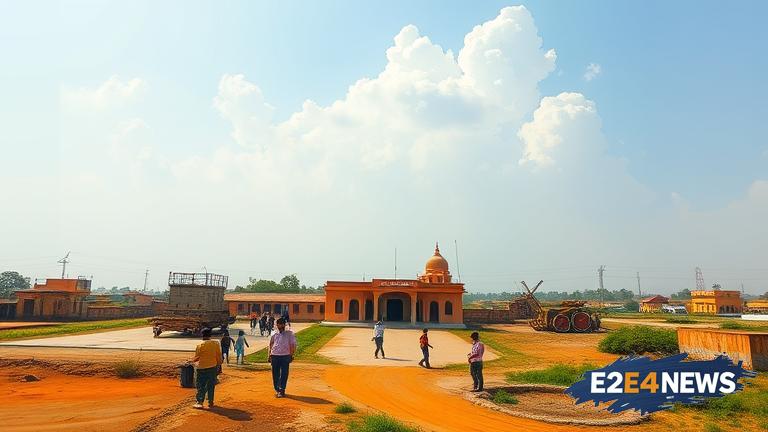The Indian government has initiated a comprehensive plan to revamp the country’s education infrastructure through Operation Kayakalp. This ambitious project aims to rebuild and renovate unsafe and abandoned school buildings, providing a safe and conducive learning environment for students. The initiative is expected to benefit millions of students across the country, particularly in rural and underprivileged areas. According to reports, many school buildings in India are in a state of disrepair, posing a significant risk to the safety and well-being of students. The government has recognized the need to address this issue and has allocated significant funds to support the reconstruction and renovation of these buildings. The project will not only focus on rebuilding physical infrastructure but also on improving the overall quality of education in India. This includes providing modern amenities, such as libraries, laboratories, and sports facilities, to enhance the learning experience. Furthermore, the government plans to implement innovative teaching methods and technologies to make education more engaging and effective. The initiative has been welcomed by educators, parents, and students, who believe that it will have a positive impact on the country’s education system. However, some experts have raised concerns about the implementation and funding of the project, highlighting the need for careful planning and management. Despite these challenges, the government remains committed to the project, recognizing its potential to transform the lives of millions of students. The project is also expected to generate employment opportunities and stimulate local economies. In addition, the government plans to involve local communities in the decision-making process, ensuring that the needs and concerns of stakeholders are addressed. The success of Operation Kayakalp will depend on the effective implementation and monitoring of the project, as well as the allocation of sufficient resources. The government has established a dedicated team to oversee the project, which will work closely with state and local authorities to ensure its successful execution. Overall, Operation Kayakalp has the potential to revolutionize India’s education system, providing students with access to safe, modern, and effective learning environments. With its focus on quality education and infrastructure development, the project is expected to have a lasting impact on the country’s social and economic development. The government’s commitment to education is evident in its efforts to improve the sector, and Operation Kayakalp is a significant step in this direction. As the project progresses, it is likely to receive attention and support from various stakeholders, including educators, policymakers, and the general public.
